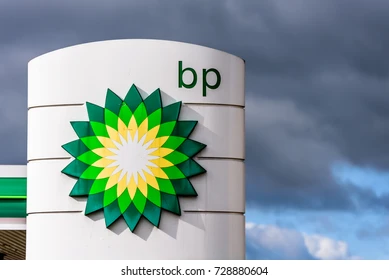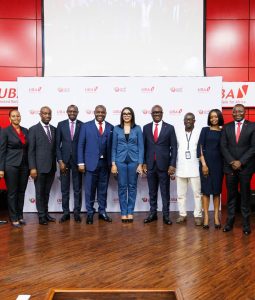
BP Plc boosted its share buybacks by $2.5 billion as cash flow surged, offsetting some of the discomfort caused by a $25.5 billion charge linked to its planned exit from Russia.
The company comfortably surpassed analysts’ expectations after an “exceptional” first quarter for its oil and gas trading business. Other commodities traders from Bunge Ltd. to Glencore Plc have also posted stronger profits, aided by the unprecedented volatility caused by the war.
Shares of BP rose 1.9% to 393.8 pence as of 8:04 a.m. in London.
“In a quarter dominated by the tragic events in Ukraine and volatility in energy markets, BP’s focus has been on supplying the reliable energy our customers need,” Chief Executive Officer Bernard Looney said in a statement on Tuesday. “Our decision in February to exit our shareholding in Rosneft resulted in the material non-cash charges.”
The company followed its peers Exxon Mobil Corp., Chevron Corp. and TotalEnergies SE, all of which saw their first-quarter net income — excluding Russia-related writedowns — soar in tandem with oil and gas prices after the invasion of Ukraine.
BP will expand its share buyback by $2.5 billion, following through on a pledge to return a portion of surplus cash flow to investors. The company repurchased $1.6 billion in the first quarter. That figure could grow further this year as oil and gas prices are forecast to remain above $100.
“Our bullish commodity price deck suggests the company is likely to generate significant free cash flow in the coming years,” RBC analyst Biraj Borkhataria said in a note. “We believe investors could receive more than 50% of the company’s market cap back over the next five years.”
BP’s first-quarter adjusted net income was $6.25 billion, more than double the amount from a year earlier and surpassing analyst expectations of $4.43 billion. The figure doesn’t include an accounting loss of $29.29 billion, which is largely due to BP’s decision to dump its stake of about 20% in Kremlin-controlled oil giant Rosneft PJSC.
The impact of the writedown on BP’s total equity led to a slight increase in gearing to 25.9%, even as net debt fell to $27.46 billion.
BP remained tight-lipped about its strong trading performance. “We don’t disclose the numbers” for the division, Looney said in an interview with Bloomberg TV, while noting the “incredible volatility” in the quarter. The unit that refines and trades oil products posted an almost fivefold increase in earnings before interest, taxes, depreciation and amortization to $2.03 billion.
London-based BP emphasized its commitment to help the U.K. boost its energy security, pledging investments of £18 billion ($23 billion) by the end of 2030, including North Sea oil and gas and also low-carbon sources. BP nevertheless stuck to its strict annual capital expenditure budget of $14 billion to $15 billion, and spent $2.9 billion in the first quarter.
fortune.com




TG中文版下载是您获取官方信息的最佳来源。了解其安全特性、多平台支持以及如何开始使用。立即访问!
I have been browsing online more than three hours these days, but I by no means discovered any attention-grabbing article like yours. It is pretty worth enough for me. In my opinion, if all webmasters and bloggers made excellent content material as you did, the internet shall be a lot more useful than ever before.
贴纸和 GIF 是 Telegram下载 聊天中的乐趣,丰富了用户的表达方式。
whoah this blog is fantastic i love reading your articles. Stay up the great work! You realize, many individuals are looking round for this information, you could help them greatly.
Hi there, just become aware of your weblog through Google, and found that it’s really informative. I’m going to watch out for brussels. I’ll appreciate in case you proceed this in future. Lots of folks will likely be benefited out of your writing. Cheers!
Hi there! This post couldn’t be written any better! Reading through this post reminds me of my previous room mate! He always kept talking about this. I will forward this article to him. Pretty sure he will have a good read. Thank you for sharing!
I beloved as much as you’ll obtain performed proper here. The sketch is attractive, your authored subject matter stylish. nevertheless, you command get got an edginess over that you would like be turning in the following. ill for sure come further beforehand again since precisely the similar nearly very ceaselessly inside case you protect this hike.
Yesterday, while I was at work, my cousin stole my apple ipad and tested to see if it can survive a 30 foot drop, just so she can be a youtube sensation. My iPad is now broken and she has 83 views. I know this is completely off topic but I had to share it with someone!
Fantastic site. Plenty of helpful information here. I?¦m sending it to several friends ans also sharing in delicious. And of course, thank you on your sweat!
I was very pleased to find this web-site.I wanted to thanks for your time for this wonderful read!! I definitely enjoying every little bit of it and I have you bookmarked to check out new stuff you blog post.
Today, I went to the beachfront with my children. I found a sea shell and gave it to my 4 year old daughter and said “You can hear the ocean if you put this to your ear.” She placed the shell to her ear and screamed. There was a hermit crab inside and it pinched her ear. She never wants to go back! LoL I know this is totally off topic but I had to tell someone!
Sweet web site, super design and style, really clean and apply friendly.
What i don’t realize is actually how you are not really much more well-liked than you might be now. You are so intelligent. You realize therefore considerably relating to this subject, made me personally consider it from a lot of varied angles. Its like men and women aren’t fascinated unless it is one thing to do with Lady gaga! Your own stuffs outstanding. Always maintain it up!
I was reading some of your content on this internet site and I think this internet site is very instructive! Retain putting up.
But wanna tell that this is extremely helpful, Thanks for taking your time to write this.
It’s actually a great and useful piece of information. I am satisfied that you simply shared this useful information with us. Please stay us informed like this. Thanks for sharing.
You have remarked very interesting points! ps decent internet site.
Lovely just what I was looking for.Thanks to the author for taking his clock time on this one.
Its like you learn my mind! You seem to know a lot about this, such as you wrote the e-book in it or something. I feel that you simply could do with a few to drive the message home a little bit, however instead of that, that is fantastic blog. A fantastic read. I will definitely be back.
Hello! I just would like to give a huge thumbs up for the great info you have here on this post. I will be coming back to your blog for more soon.
Helpful information. Lucky me I found your web site by accident, and I’m shocked why this accident didn’t took place in advance! I bookmarked it.
Hey very cool website!! Guy .. Beautiful .. Amazing .. I will bookmark your site and take the feeds additionally?KI am glad to seek out so many useful info right here within the put up, we need develop more techniques on this regard, thanks for sharing. . . . . .